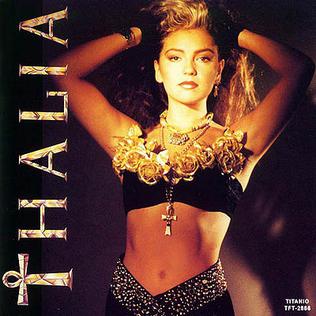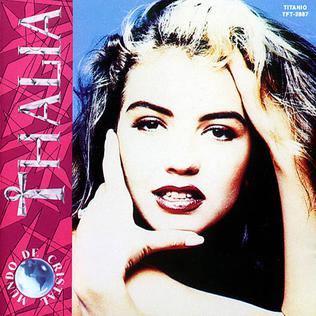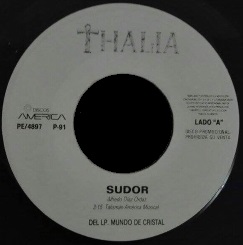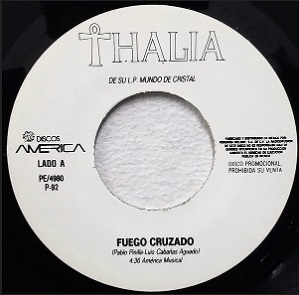See also
- List of Mexicans
- William Hung - another singer who became famous in a similar way
- Boy George
Fernando Villares Moreno (1955-March 9, 2017), also known as Zorro (Fox), was a Mexican singer and politician. He was from Yucatan, Mexico, where he resided for a good portion of his life. [1]
He was the son of Fernando Villares Cámara (Fernando Villares Sr.) and of Carmen Gladys Moreno Chauvet, both of whom owned businesses and were involved in local politics. [2]
Villares Moreno launched a singing career as a young man. He was known for his androgynous looks, with neck-length blond hair as well as clothing that included hair and many faux fox tails attached to it.
Villares Moreno was managed by Amparo Rubin (mother of Timbiriche member Erik Rubin), who had him sing live on a Televisa show named Siempre en Domingo (Always on Sunday). Villares Moreno had released an LP album in 1981, named Fugitivo.
What was supposed to be a crowning achievement for Villares Moreno instead turned into an embarrassing moment, both for him and for the show's host Raul Velasco, and one that has been often mentioned among fans as one of the show's most memorable incidents, when Villares Moreno sang live on the show on January 17, 1982. Velasco greatly disliked Villares Moreno's looks and voice, and he made his dislike known to the public, interrupting Villares Moreno as he was in the midst of singing his song titled Fugitivo. [3]
Velasco proceeded to let Villares Moreno know that he disapproved of Villares Moreno's voice and looks. Since Siempre en Domingo was seen across Latin America, this episode gave Villares Moreno a sort of infamy in the Spanish speaking world.
Televisa's owners, however, along with Rubin, were trying to push Zorros career forward and were very unhappy with Velasco after the incident. Velasco was therefore forced to bring Villares Moreno back into the show the next week and offer him a public apology.
Villares Moreno continued on with his singing career and he made several concerts. However, and due in part to the embarrassing incident, his career petered out and he did not record any further albums, deciding to retire from the show business world. [4]
Villares Moreno became involved in Quintana Roo politics and he held several political offices in the state and in the city of Cancun. [5]
With the advent of video streaming services such as YouTube, videos, both featuring his Fugitivo album and his Siempre en Domingo showing, [6] [7] helped Villares Moreno find new fame later on. However, he refused to return to the world of entertainment and remained a relatively private person.
He was the brother of Rossana Villares, who was Miss Mexico in 1973. [2]
Villares Moreno was openly homosexual. [8]
The last years of his life, Villares Moreno lived in a Quintana Roo house that was left to him by his late grandmother.
Villares died of a stroke on March 9, 2017. [2]

Coahuila, formally Coahuila de Zaragoza, officially the Free and Sovereign State of Coahuila de Zaragoza, is one of the 32 states of Mexico.

María Elena Velasco Fragoso was a Mexican actress, comedian, singer-songwriter and dancer. She is best known for creating and portraying La India María, a comical character based on indigenous Mexican women.

Love is the third studio album by Mexican singer Thalía, released on 7 October 1992, by the previously owned Televisa record label, Melody/Fonovisa, which now belongs to Univision Music Group. It was produced by the Spanish songwriter and producer Luis Carlos Esteban. The album was released in Mexico, some Central-American countries, the United States, Spain, Greece and Turkey. In Mexico, two different versions of Love were released and later it would sell over 500,000 copies there, becoming her most successful album till the release of Primera Fila which sold over 600,000 copies.

Thalía is the eponymous debut solo studio album by Mexican singer Thalía. It was produced by Alfredo Diaz Ordaz and released in Mexico on 9 October 1990, by Fonovisa Records. The album consisted of songs inspired in the 1980s rock, disco, pop, and ballads style. The first two singles "Un Pacto Entre Los Dos" and "Saliva" were highly controversial due to their suggestive lyrics, but were nonetheless highly successful, and are now considered Thalía's classics along with "Amarillo Azul" and "Pienso En Ti".

Mundo de Cristal is the second studio album by Mexican singer Thalía, released in Mexico on 26 September 1991, by Fonovisa Records. It was Thalía's second and last album to be produced by Alfredo Díaz Ordaz, who was her boyfriend at that time and died of hepatitis in 1993. Mundo de Cristal was certified 2× Gold in Mexico for shipments of 200,000 units. The most successful singles from the album were "Sudor", "En La Intimidad" and "Fuego Cruzado". To celebrate Thalía's 25th anniversary as a solo artist, this album is available in the digital platforms iTunes and Spotify since December 2014.

Raúl Velasco Ramírez was a Mexican host/producer of the TV show Siempre en Domingo which is his hallmark contribution to the Latin American world and eventually to other parts of the world where Spanish entertainment programs are broadcast.
Gustavo Cárdenas Ávila, also known as Jan is a Mexican pop singer and actor, who had success as a pop-ballad singer in the 1990s and later became a screen and stage actor.

Juguemos a Cantar, was a children's competition festival that was held yearly in Mexico City beginning in 1982. Televisa produced this show, and it was transmitted on the program, Siempre En Domingo, which was hosted by Raúl Velasco. This competition was developed to seek out young talent, and was open to all Mexican resident children up to the age of 13. Juguemos a Cantar was first and foremost a "Festival De La Canción", meaning that the songwriter and the song itself is celebrated along with the performer. All songs performed in the competition were required to be original, and the song writing is judged, as well as the artist performance. The popularity of its first transmission in 1982 made it one of the most important talent Festivals in all of Latin America. In the years it aired, it served to propel an impressive number of artists, such as: Lucero, Thalía, Edith Márquez, Eduardo Capetillo, and Lorenzo Antonio, as well as many songwriters, such as Omar Alfanno, Tirzo Paiz, Lorenzo Antonio, and Sergio Andrade.
Omar Franco, Dominican singer and composer, was born on June 11 in the town of Castañuelas, in the province of Monte Cristi, Dominican Republic. He spent most of his childhood, reaching adulthood, in the city of La Vega.
Fernando Lúpiz is an Argentine fencer and actor. He competed at the 1972 and 1976 Summer Olympics. He later became known for playing Zorro on stage.

Rosa Gloria Chagoyán ; is a Mexican actress and singer of Armenian descent.

Siempre en Domingo was a Mexican variety show created and hosted by Raúl Velasco. The show aired on Televisa from December 14, 1969, until April 19, 1998, when Velasco retired.

Daniel Elbittar Villegas is a Venezuelan actor, model and singer, best known for his work in both Venezuelan and Mexican telenovelas.
This is a list of events that happened in 2017 in Mexico. The article also lists the most important political leaders during the year at both federal and state levels.
This is a list of notable events in Latin music that took place in 2006.
The 20 Años Tour was a concert tour performed by Luis Miguel during the years 1990 and 1991 to promote his last album 20 Años. On this tour he performed more than 10 sold-out concerts at the Centro de Espectáculos Premier in Mexico City, that season of concerts was recorded to later launch a VHS Video called Luis Miguel: 20 Años.

"Sudor" is a song by the Mexican singer Thalía released as the first single of her second album release Mundo de Cristal, in 1991. "Sudor" is the second of four songs in which Thalía talks about body fluids, the others are "Saliva", "Sangre" and "Lágrimas" from the albums Thalía, Love and En éxtasis, respectively.

"Love" is a song by the singer Thalía, released as the third single from the album Love, from 1992. The track was released as 12" single with remix versions and a music video was made for the TV special Love Thalía, from 1993. The song appeared on the charts of the Mexican newspaper El Siglo de Torreón and the magazine Notitas Musicales.

"En la Intimidad" is a song by Mexican singer Thalía, released in 1992 as the third single from the album Mundo de Cristal. The song and its music video caused controversy due to the provocative and sensual lyrics but was successful on the charts of the Mexican newspaper El Siglo de Torreón.

"Fuego Cruzado" is a song by the singer Thalía released as the third single from the album Mundo de Cristal, in 1992. The song was released after the controversy caused by the lyrics of the singer's previous single and was successful in the singer's home country.